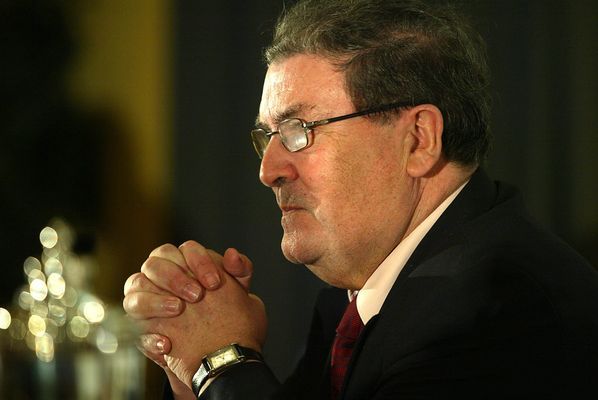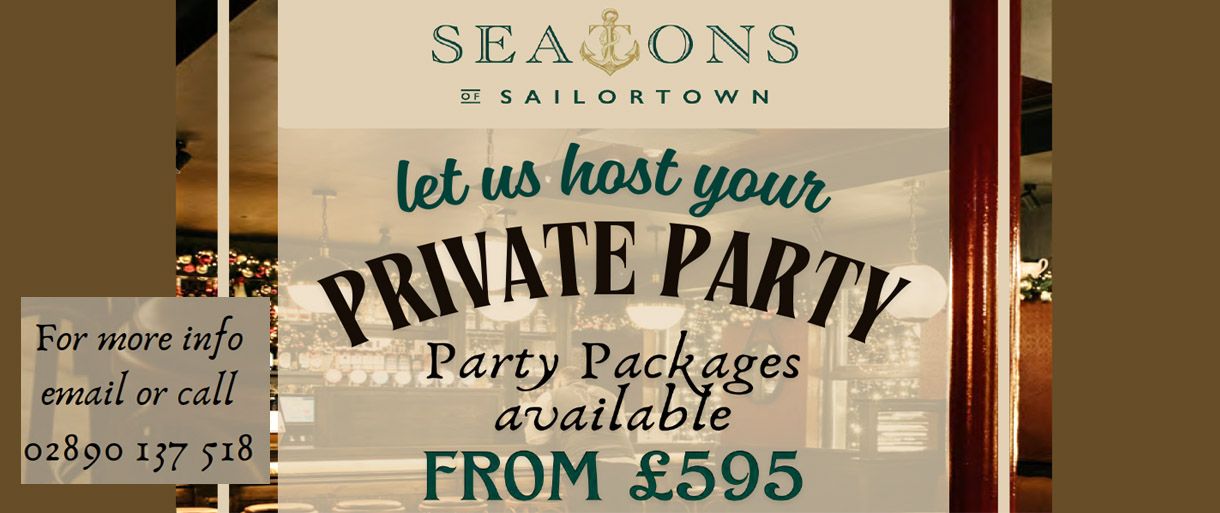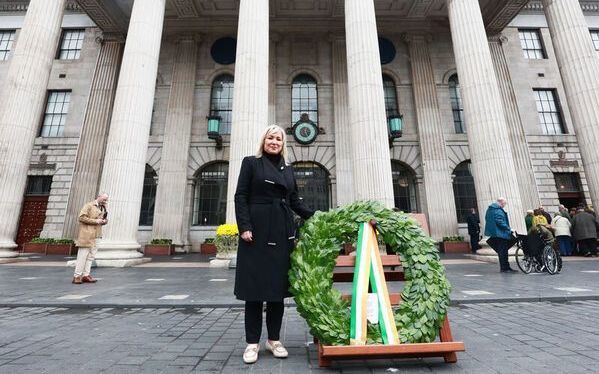BECAUSE you’re reading this newspaper and this column, it’s a reasonably safe bet that you, like me, would welcome the day when, from Coleraine to Cork and Newport to Newry, the border in Ireland was permanently removed.
The latest findings from a North and South polling project which has been conducted for the past three years by Ipsos NI and Ipsos B&A bring reasons to be cheerful as well as reasons to be glum. Let’s start with the glum stuff.
Voters in the South have a different view on a reunited Ireland becoming a member of NATO or the Commonwealth. People in the North would be more in favour of joining NATO than in creating a new Ireland. People in the South are strongly opposed to Ireland joining either NATO or the Commonwealth. Voters in the South and those from a Catholic background in the North would be more opposed to joining the Commonwealth than to joining NATO.
There’s a lot to give you thought from the project’s most recent findings. Boiled down, we see that Southerners, while in favour of a reunited Ireland, are strongly against changes to flags, symbols and emblems, or to make financial sacrifices, or constitutional changes, to accommodate unionists in a new united Ireland. (That’s in the event that referendums on both sides of the border are passed.)
In the North, only 34 per cent of those polled said they favoured a united Ireland. However, that’s a significant increase from the 27 per cent who three years ago said they favoured a united Ireland. Similarly, the proportion of Northern Catholics saying they would vote for a united Ireland is up from 55 per cent in 2022 to 63 per cent in 2024. But 18 per cent of Northern Catholics still say they would vote against unity.
In 2022, 34 per cent of northern unionists said they’d find it “almost impossible” to accept a majority vote for Irish reunification. Three years later, that figure has dropped to 20 per cent.
Summed up, if present tends continue, then by 2027 a majority of voters North and South would favour Irish reunification.
The poll reminds us how classification can come as a surprise. Take that 18 per cent of Northern Catholics who would be opposed to Irish reunification. That’s nearly one in five Catholics/nationalists who would favour continuing British control of the north-eastern corner of their country. Why?
Well, people are funny and often have a mixture of reasons for their political thinking. One big factor is that many people dislike change of any kind – the times for Sunday Mass, body tattoos, banks, speed limits, newspapers. There’s something in many of us that matches the father’s advice in Hilaire Belloc’s poem ‘Jim, Who Ran Away from his Nurse and was Eaten by a Lion’. Dad’s advice? ‘Always keep a-hold of Nurse/For fear of finding something worse.’ We know how things are, but if we change we fear things could be even worse.
We’re so used to partition we tend to see virtue in our difference. Sorcha Eastwood on The View last week gloried in her "good old-fashioned Northern Ireland frankness". And so the caricature of North-South differences gets reinforced.
John Hume’s father, wisely, advised him against eating a flag. But that doesn’t mean flags are meaningless, or what they represent. They announce in many ways where people’s loyalties lie. If we watch the Ipsos poll year by year, we see the icebergs of unionist stubbornness and nationalist fearfulness slowly melting.
We’re not holding on to Nurse’s hand. She’s hanging on to ours, and the sooner we discover our ability to cross the constitutional road on our own and find something better, the sooner the ‘Irish question’ will be resolved.
Keep an eye on that Ipsos poll between now and 2027. And don’t let anyone tell you that plans for national reunification must be set aside until later.









